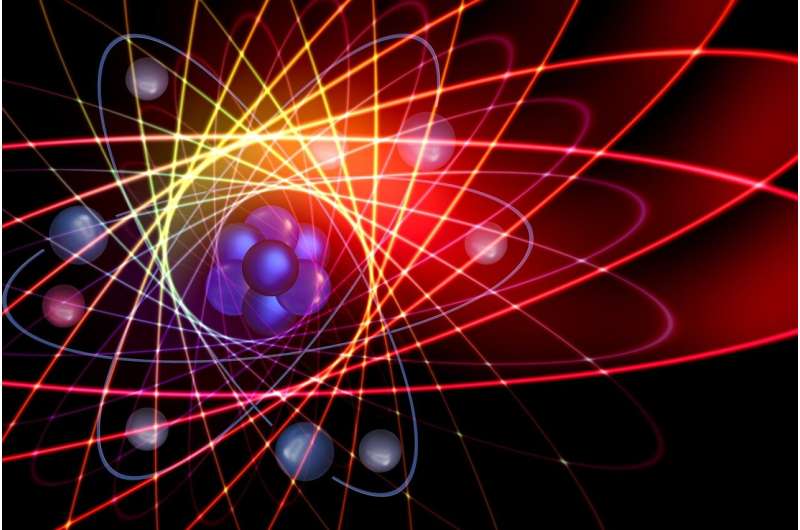Researchers construct a framework to solve bound and scattering state problems in quantum mechanics education

In a study published in Physical Review-Physics Education Research, a research team led by Academician Guo Guangcan from the University of Science and Technology of China (USTC) of the Chinese Academy of Sciences has successfully constructed a theoretical framework of Activation-Construction-Execution-Reflection as well as a thinking mechanism model based on Overgeneralization to help students solve bound and scattering state problems in quantum mechanics education.
Education research on mechanics is an emerging field in physics. The research on quantum physics is notably appraised as “just the tip of the iceberg” by C. Wieman, a Nobel Prize winner for physics. The research team led by Academician Guo Guangcan appropriately pays close attention to and enters this emerging frontier field.
There are two schools in the field of research on physics education. One is represented by G. Parisi, a Nobel Prize winner for physics, who values statistics from the perspective of complexity science. The other one is represented by C. Wieman, another Nobelist for physics, who values empirical investigation from the perspective of pedagogy. The research team from USTC combined these two methods to do research on the thinking framework of students learning bound and scattering state in quantum mechanics by statistical analysis of 406 undergraduates from the School of Physical Sciences for a six-year duration. The team has successfully constructed a theoretical framework of Activation-Construction-Execution-Reflection as well as a thinking mechanism model based on Overgeneralization.
A complex circuit network has numerous nodes. These nodes are either connected or disconnected. Only if all the nodes are of a series connection will the percolation threshold be attained and the whole circuit network will achieve connectivity.
Similarly, the knowledge memory of one student is also composed of different nodes that represent different knowledge fragments in a specific field of physics. Students need to connect these nodes in their brains according to the relation of physical knowledge. When all the knowledge nodes are connected through a right relation in a proper manner, the students’ thinking process will achieve a percolation threshold, which enables students to master relevant physical knowledge and solve physical problems.
The researchers used the above knowledge model to concentrate on students’ difficulties with solving bound and scattering state problems in quantum mechanics and found an interesting framework in their mind including activation of relevant concepts, construction of differential equations, execution of analytic calculation, and reflection on problem-solving processes. Common difficulties focused on three key nodes: (1) recognizing when the time-dependent Schrodinger equation is the appropriate model; (2) selecting a range of the energy constants that satisfies the bound or scattering state; (3) deciding when to use a superposition form of the wave functions. These research findings not only provide students with a profound understanding of the underlying reasoning mechanisms for quantum physics, but also offer abundant resources to quantum physics instruction. That is to say, if students get help when solving these crucial nodes, they will acquire knowledge from an overall connected perspective instead of a partially connected view. That is the proper learning mode.
The findings of the study show a new breakthrough of USTC in this field and will have significant implications for education research in China.
Researchers investigate ‘imaginary part’ in quantum resource theory
Tao Tu et al, Students’ difficulties with solving bound and scattering state problems in quantum mechanics, Physical Review Physics Education Research (2021). DOI: 10.1103/PhysRevPhysEducRes.17.020142
Provided by
University of Science and Technology of China
Citation:
Researchers construct a framework to solve bound and scattering state problems in quantum mechanics education (2021, December 27)
retrieved 27 December 2021
from https://phys.org/news/2021-12-framework-bound-state-problems-quantum.html
This document is subject to copyright. Apart from any fair dealing for the purpose of private study or research, no
part may be reproduced without the written permission. The content is provided for information purposes only.
For all the latest Science News Click Here
For the latest news and updates, follow us on Google News.

